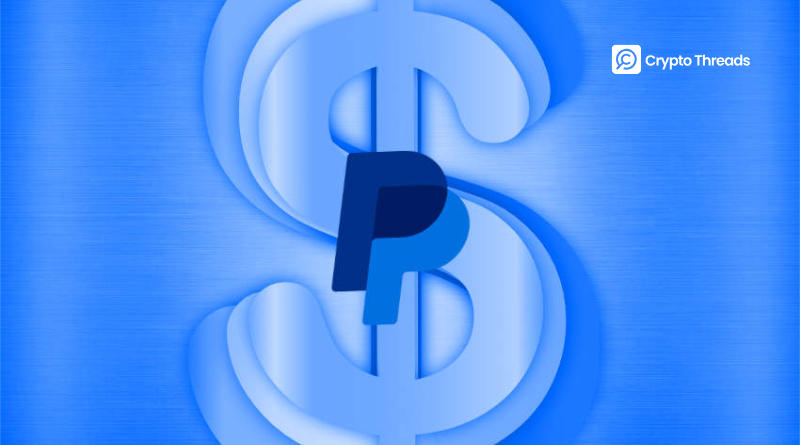PayPal’s PYUSD Stablecoin Expands to Tron, Avalanche, Sei via LayerZero
PayPal’s PYUSD stablecoin is breaking new ground, expanding to Tron, Avalanche, Sei, and more through a LayerZero integration—boosting cross-chain reach and stablecoin flexibility.
- New PYUSD0 token is fully fungible with native PYUSD and redeemable 1:1 for USD.
- Builds on PayPal’s existing deployments on Ethereum, Solana, Arbitrum, and Stellar.
- Integration uses LayerZero’s Omnichain Fungible Token (OFT) standard to remove liquidity silos.
- Current circulating supply: 1.9B, still small compared to USDT and USDC.
PayPal is taking its stablecoin ambitions to the next level, extending the reach of PayPal USD (PYUSD) to multiple new blockchains through a strategic partnership with LayerZero. The new PYUSD0 token, introduced via LayerZero’s Stargate Hydra bridge, will debut across seven new networks, including Tron, Avalanche, Sei, Aptos, Abstract, Ink, and Stable.
Originally launched in 2023 on Ethereum, PYUSD later expanded to Solana and Arbitrum, with Stellar added just this week. The fresh rollout ensures that PYUSD0 remains “fully fungible” and interoperable with native PYUSD, meaning users can redeem or transfer tokens seamlessly across chains while maintaining a 1:1 U.S. dollar peg. Existing bridged versions on Berachain (BYUSD) and Flow (USDF) will also upgrade to PYUSD0, creating a more unified liquidity landscape.
This development builds on PayPal’s November integration of LayerZero’s Omnichain Fungible Token (OFT) standard, which allowed PYUSD holders to move tokens freely between Ethereum and Solana without relying on centralized intermediaries like Venmo or PayPal itself. By leveraging LayerZero’s tech, PayPal aims to eliminate liquidity fragmentation and empower self-custodial users to transact across chains with ease.
Although PYUSD’s current 1.9 billion circulating supply is modest compared to major stablecoins such as Tether’s USDT and Circle’s USDC, the expansion could drive adoption by tapping into high-volume ecosystems like Tron and Avalanche, both known for their vibrant DeFi and payments activity. LayerZero has also enabled a similar omnichain version of Tether’s USDT—known as USDT0—demonstrating strong precedent for cross-chain stablecoin success.

PayPal is simultaneously expanding its broader payments ecosystem. Earlier this week, the company unveiled PayPal Links, a peer-to-peer payments feature allowing users to send and receive funds via personalized links. Upcoming updates will add crypto support, including bitcoin, ether, and PYUSD, across PayPal, Venmo, and compatible wallets worldwide, signaling the firm’s steady march toward a full-scale crypto economy.
Final Thought
By bringing PYUSD to seven new blockchains through LayerZero, PayPal strengthens its foothold in the stablecoin arena and sets the stage for broader cross-chain adoption. With its LayerZero-powered PYUSD0 token and upcoming crypto payment features, PayPal is positioning itself as a key player in the next wave of decentralized finance and global payments.



